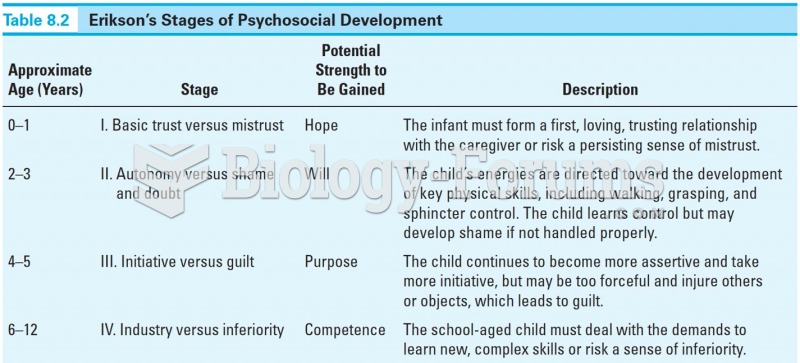|
|
|
Vaccines cause herd immunity. If the majority of people in a community have been vaccinated against a disease, an unvaccinated person is less likely to get the disease since others are less likely to become sick from it and spread the disease.
Cancer has been around as long as humankind, but only in the second half of the twentieth century did the number of cancer cases explode.
The first documented use of surgical anesthesia in the United States was in Connecticut in 1844.
In the United States, there is a birth every 8 seconds, according to the U.S. Census Bureau's Population Clock.
Adolescents often feel clumsy during puberty because during this time of development, their hands and feet grow faster than their arms and legs do. The body is therefore out of proportion. One out of five adolescents actually experiences growing pains during this period.







